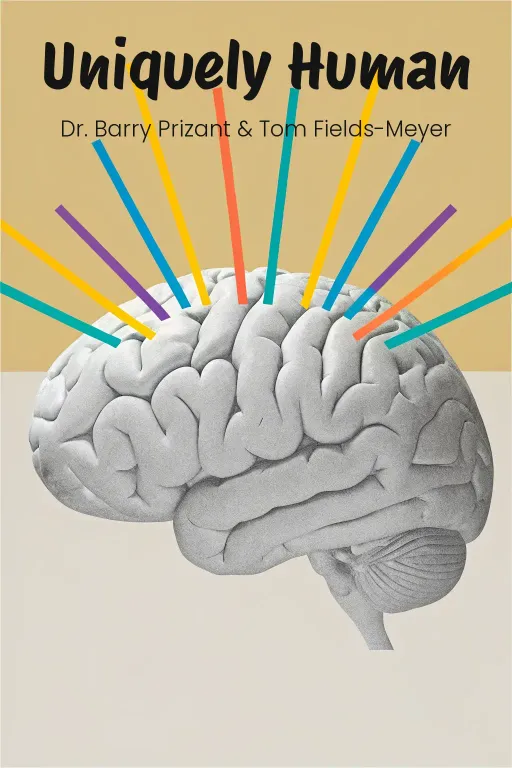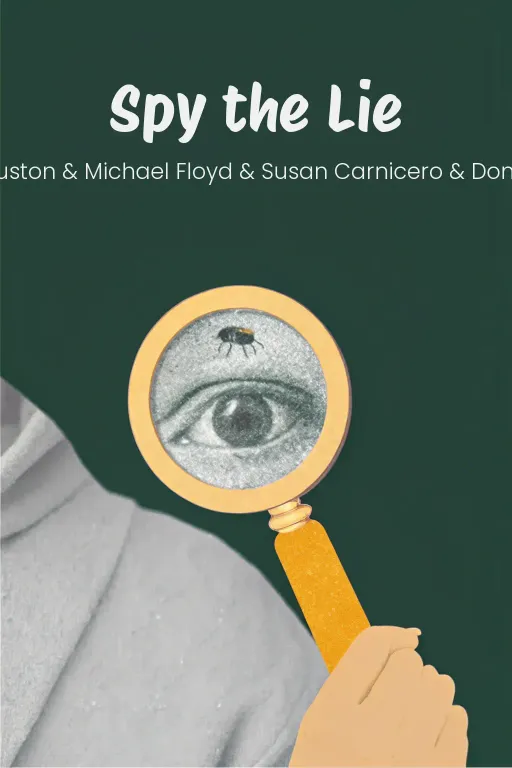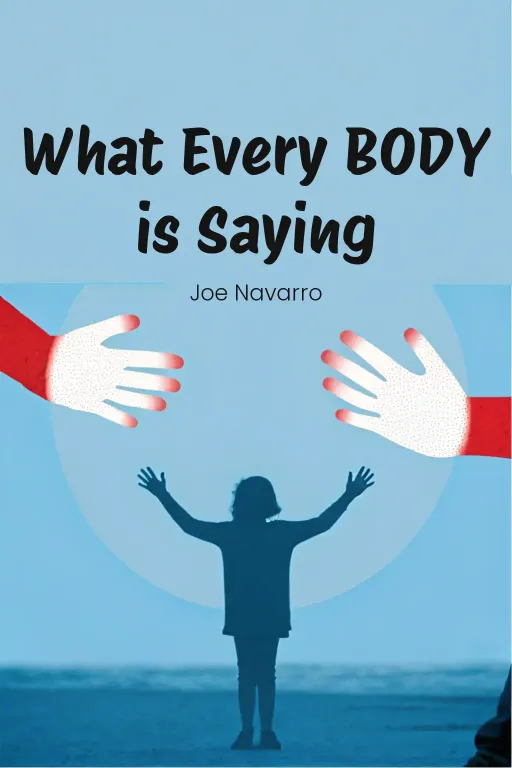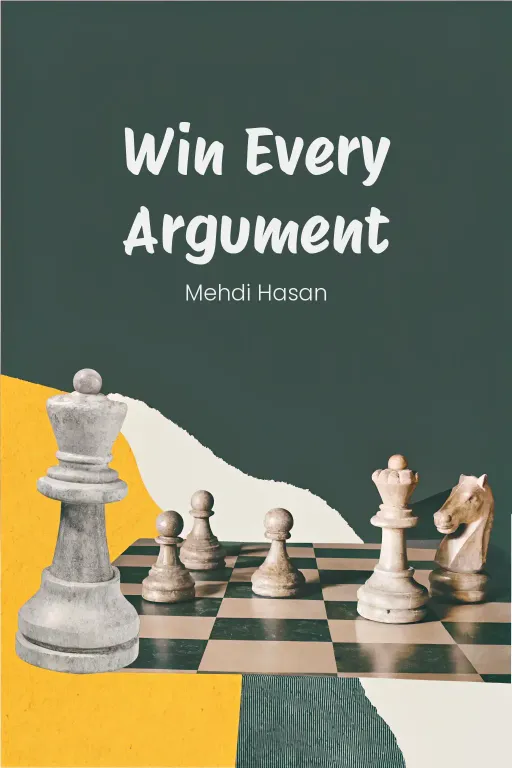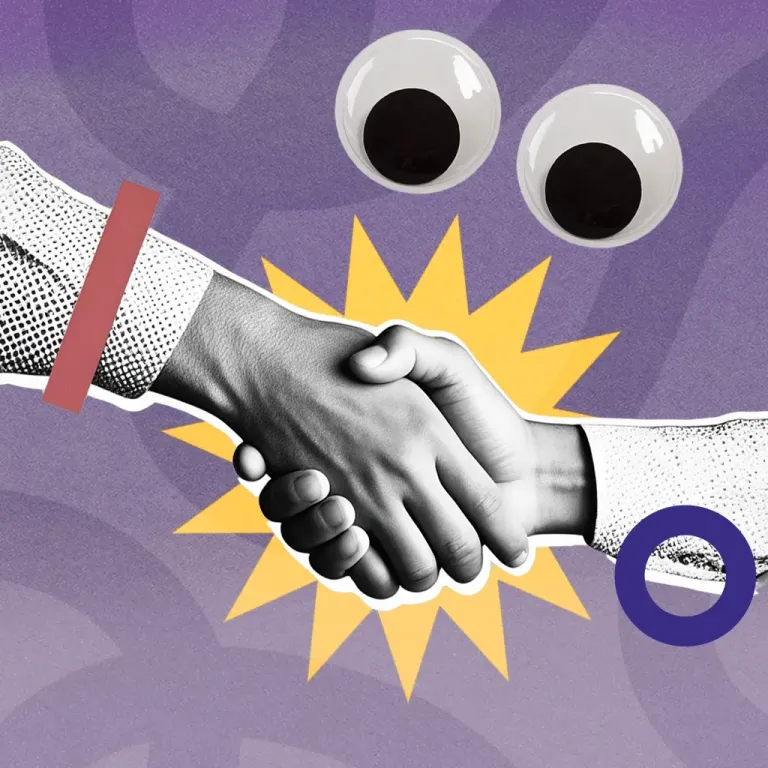
Mind Tricks: Spot the Hidden Persuasion
Podcast by The Mindful Minute with Autumn and Rachel
The Psychology of Persuasion
Introduction
Part 1
Autumn: Hey everyone, welcome to the show! Today we're diving deep into the psychology of persuasion – it's fascinating and sometimes, a little bit sneaky. Rachel, I gotta ask you: have you ever bought something on impulse, and then thought, "What was I thinking?" Rachel: Oh man, tell me about it! Like that time I walked out of a farmers market with, like, twenty bucks’ worth of fancy pickles I didn’t even like. I swear, those pickles were calling to me. Is this going to tie back to some kind of persuasion Jedi mind trick, right? Autumn: You're on the right track! These so-called "mind tricks" are often rooted in six core psychological principles of influence. Robert Cialdini explores them in his book, “Influence: The Psychology of Persuasion”. Basically, it's all about understanding how and why we make decisions. Often, without even realizing it. Rachel: Six principles, eh? Let me take a stab at this... Are we talking guilt trips, peer pressure, and—shiny things? Autumn: Not bad! The real six are reciprocation, commitment and consistency, social proof, liking, authority, and scarcity. Cialdini’s book “really” peels back the curtain on these forces. He blends research with real-world examples. Like, why do we feel obligated to say “yes” to a favor? Or why do "limited-time offers" work so dang well. These concepts are everywhere, aren't they? Rachel: So basically, we are all just walking around trying to play checkers, while marketers are playing, like, 4D chess with our minds? Autumn: <Laughs> Something like that… which brings up the whole ethics question. Today, we’re going to unpack three things: the six principles themselves, the psychology behind them, and most importantly, how to use this knowledge… responsibly. Think of it as a crash course in spotting manipulation – and maybe even using these tactics ethically in everyday life. Rachel: So listen, are you going to tell us that this podcast is our, like, “secret weapon” so we don't buy any more artisanal fancy pickles? Autumn: Hey, if it works, great! But seriously, by the end of this discussion, we should all have a clearer picture of how persuasion shapes our world. And how we can take a little more control back over our choices, you know?
The Six Principles of Influence
Part 2
Autumn: Okay, so let's dive into reciprocation. It's really one of the most fundamental principles, you know? It’s that innate human drive to return favors, and honestly, it’s what keeps society functioning. Think about it: hospitality, gift-giving traditions, even just that simple "I got the coffee last time, you're up next" kind of thing. Rachel: Right, it all sounds very civilized. But, I've got to ask, isn't it just ripe for manipulation? Are you saying that a free soda, “a simple soda”, can mess with my decision-making process? Autumn: Absolutely. That brings us to Dennis Regan’s Coke experiment. It's a classic, and illustrates this principle perfectly. So, picture this: people think they’re participating in a study to rate paintings, right? Then, this guy—who’s in on the whole thing—leaves the room and comes back with a Coke for himself “and” one for the participant, completely unsolicited. Later, he asks them to buy raffle tickets. What do you think happens? Rachel: Oh, this sounds like an ambush. The "Coke Conundrum," maybe? Did they suddenly feel compelled to buy tickets, as if their lives depended on it? Autumn: Almost! Those who got the Coke were twice as likely to buy those tickets. Twice! And the crazy thing is, whether they even “liked” this person didn’t matter. That small gesture created this sense of obligation. Rachel: Wow. So, basically, next time someone offers me something for "free," I should be thinking, "Is this just a friendly gesture, or am I being softened up for a high-pressure raffle ticket sale?" Autumn: Exactly! It’s also why “free” samples and trial memberships are so effective in marketing. They're not “just” being nice; they're tapping into our discomfort with being indebted. It’s a psychological game. Rachel: So, my mailbox is a psychological battlefield? All those address labels from charities with a note that says, “a gift for you”? Autumn: Precisely. It works! The beauty—or perhaps the danger—of this principle lies in its universality. It doesn’t matter who you are or where you come from; we’re all wired to reciprocate. Rachel: Okay, so we regular people feel guilty, and salespeople make their quotas. Got it. What’s the next principle? Autumn: Alright, let's move on to commitment and consistency—our deep-seated need to align our actions with what we’ve already said or done. It’s really clever. Once we make a small commitment, we’re way more likely to follow through with bigger things later on. It’s all about keeping that consistent self-image. Rachel: Okay, I get the broad strokes. But how do these tiny, seemingly insignificant steps end up trapping us? Autumn: That’s where the "Foot-in-the-Door" technique comes in, perfectly illustrated by Freedman and Fraser’s experiment. So, homeowners were approached and asked to put up a small, almost invisible sign about safe driving. No big deal, right? Most agreed. Later, they hit them with a “much” bigger ask: a giant, ugly billboard with the same message. Rachel: Let me guess, suddenly their front yards looked like Times Square? Autumn: Pretty much! Astonishingly, 76% of those who’d agreed to the small sign also agreed to the billboard. Compare that to only 17% of those who were just asked about the billboard outright. That initial, tiny commitment did it – they had seen themselves as someone who cares about safe driving. Rachel: Interesting. Next time the gym is handing out free trial passes and I’m nodding along to "achieving my fitness goals," I'll remember where that can lead. Autumn: Exactly! And this is everywhere—public commitments, petitions, initial sign-ups. Once you take that first step, the path is so much easier. Rachel: I see this could be useful, but also dangerous. I mean, where's the line between guiding someone and flat-out manipulation? Autumn: Now “that's” the million-dollar question. Techniques like this can ethically empower people, like helping them quit smoking or stick to a workout plan. But it can also backfire, trapping people in things if they'd known the full scope upfront. Rachel: Right, and it feels like psychological Jenga. You pull out one commitment and the whole thing either becomes stronger or falls apart based on intent. Autumn: Precisely. Shifting gears a bit, let’s look at social proof. We’re incredibly influenced by what everyone else is doing, especially when we’re unsure. The idea being, if everyone’s doing it, it “must” be right. Rachel: Ah, the classic "everyone's jumping off a cliff." Autumn: Okay, it’s usually not that extreme, but it can have serious consequences. Have you ever heard of the Kitty Genovese case? Rachel: Is this one of those classic case studies they drag out in Psychology 101? Still, I’m intrigued. Autumn: It’s studied for good reason. In 1964, Kitty Genovese was brutally murdered. And the really disturbing part? Thirty-eight witnesses heard her cries for help, and “no one” intervened. Psychologists later said this was the perfect storm of social proof gone wrong, combined with something called diffusion of responsibility. Rachel: So, people froze, assuming that if it was “really” serious, someone else would have done something, right? Autumn: Exactly. That’s pluralistic ignorance—everyone assuming someone else will take care of it, or that things aren’t as bad as they seem because no one is acting. It’s a chilling example of how social proof can paralyze us. Rachel: Okay, that “is” disturbing, yet ironic. Social proof keeps us lining up for concert tickets but stops us from helping someone in danger? Autumn: Exactly. You got it. So are you naturally “go with the flow”, or do you tend to follow your own compass? Rachel: It depends. But after this, I might commit to at least double-checking if "wisdom of the crowd" is wise. What’s next on our list of persuasive mind tricks?
Psychological Mechanisms Behind Influence
Part 3
Autumn: Okay, let's dive into liking. It's such a simple concept, but incredibly powerful. Basically, we're more likely to say “yes” to people we like. It could be because of how attractive they are, how similar we are, if they give us compliments, or even if we just share some common ground. Rachel: So, you're saying if someone's good-looking and tells me they like my shoes, I'm basically putty in their hands? Autumn: You'd be surprised! There's a study about Canadian federal elections that really highlights this. Attractive candidates got way more votes – like, twice as many – as their less attractive counterparts. And get this – 73% of voters swore appearance had nothing to do with their choice. Rachel: Seriously? They thought they were voting based on, you know, “policies,” but secretly it was all about who had the best smile? Autumn: Right! It's the “halo effect.” Our brains kind of automatically associate attractiveness with other good qualities, like competence or trustworthiness. And it's subconscious, so most people don't even realize it's happening. Rachel: "Halo effect," huh? Explains why dating apps are so popular, I guess. But doesn't this kind of bias mess with important decisions? I mean, elections shouldn't be about who looks the nicest. Autumn: Exactly. It shows how liking influences our judgments without us even knowing. And it's not just politics, it's everywhere. Think about car salespeople who act just like you, or influencers who make you feel like their best friend. The danger is that liking can cloud our judgment. Rachel: Got it. So, next time someone tells me they love my sarcasm, I should run. What's next? Something equally mind-bending, I assume? Autumn: Oh, absolutely. Let's talk about authority. It's one of the biggest triggers out there. We're programmed to listen to experts or authority figures, sometimes even when it goes against our own instincts. Rachel: Let me guess, this is where lab coats and fancy titles make people do irrational things? Autumn: Bingo. A classic example is a case with nurses and doctors. There was this study where a doctor prescribed ear drops to be administered... rectally. And the nurse actually did it, no questions asked, just because a doctor told them to. Rachel: Ear drops... you know where? Okay, I'm trying not to think about that too much. The real question is, how does someone agree to something so obviously wrong? Autumn: It's a mix of how we're raised and those mental shortcuts we take. We're taught to trust authority from a young age – it makes things efficient. But it can also shut down our critical thinking. When someone in charge gives an order, we're more likely to follow it, even if it doesn't make sense. Rachel: So, blind obedience, basically. Makes you wonder how many mistakes happen just because people don't feel like they can question things. Autumn: Definitely. And it's not just in hospitals. Think about ads where “experts” endorse products – even if those “experts” are paid or have questionable backgrounds. We need to ask more questions and challenge authority a bit more, especially when it really matters, but also when we are just buying toothpaste. Rachel: I'll keep that in mind the next time I see "Doctor Recommended" on anything. Okay, Autumn, what's the last trick up your sleeve today? Autumn: Scarcity. It's all about giving people a fear of missing out. Basically, if we think something is limited, we want it more, because we're afraid we'll lose out. Rachel: Ah, FOMO. Nothing gets people to buy like "Only two left!" Autumn: Exactly. It's wired into us. There was this study with toddlers, where they showed them two identical toys, but put one behind a barrier. The toy behind the barrier instantly became the more desirable one. Rachel: So even toddlers fall for the "you can't have this" trick? That's worrying. Autumn: It is. Scarcity plays into our need for autonomy. When we feel like our choices are being limited, we want what's unavailable even more. That's why "limited edition" sneakers and countdown clocks on websites work so well. Rachel: So, I might end up buying something not because I actually want it, but because I don't want someone else to have it? Makes perfect sense. Autumn: And that's why knowing this stuff is so important. Scarcity can push us to act, which is good in some situations. But we need to ask if our urgency is real or just created by marketing. Rachel: Okay, so, the next time I see "one day left to save," I'll ask myself if I really need it, or if I just hate missing out. Autumn: Exactly! Recognizing these triggers helps us take back control. Knowing how reciprocation, commitment, social proof, liking, authority, and scarcity work can help us pause and make better choices.
Ethical Implications and Personal Empowerment
Part 4
Autumn: So, with that foundation, let's look at how these principles play out in the real world. Let's dig into the ethical side of things and how we can use this knowledge to empower ourselves. Our final topic shifts to a broader view—navigating influence ethically, understanding its boundaries, and making our own well-informed decisions. Rachel: Exactly, because it's one thing to recognize all of these principles at work, but another entirely to really ask: is this being used for good? Am I being manipulated? I'm ready, Autumn. Let's get into this “responsible influence” stuff. Autumn: Perfect, because ethical influence boils down to two things: intention and transparency. Let’s take reciprocation as an example. When used ethically, it's a foundation for trust and community. A company might offer a free trial, for example, providing valuable resources to help people make informed choices. On the other hand, things get murky when there are ulterior motives—like pressuring someone to buy something just because they got a "free gift." Rachel: So, when those Hare Krishna people handed out flowers, it wasn't just a random act of kindness—they were creating an obligation, right? Autumn: Precisely. It's a clever, albeit manipulative, use of reciprocity. They knew people would feel obligated to give something back, even without any real connection to the cause. That's why ethical reciprocity needs to be transparent. If the intent is to build long-term relationships—fostering brand or cause loyalty—it’s ethical. But if it's simply a tactic to pressure someone into an immediate decision, you've crossed a line. Rachel: So, it's not just about the giving—it's about the why behind it. If I give you a Coke, there better not be strings attached. Got it. What about authority? That’s where things can get “really” dicey, right? Autumn: Absolutely, authority is incredibly powerful—and dangerous too, because we're programmed to trust experts. Remember the nurse following that questionable order? It wasn't about bad intentions; it was a result of a system where authority demands obedience. But here’s a bigger issue—what happens when authority is intentionally misused, like in advertising? We've all seen products endorsed by "doctors" who may not even be licensed professionals. Rachel: Ah yes, the classic "lab coat marketing." Clearly, putting someone in a white coat makes them a medical authority on everything. Autumn: Exactly! The problem is the lack of transparency. If someone presents credentials or symbols of expertise but doesn't have the actual authority, they’re using authority to bypass our skepticism. That’s why critical thinking is so important—we need to stop and ask, "Is this person actually qualified to say this?" Rachel: Right, resist the shiny coat of "Doctor Approved." That should be a red flag. But what about scarcity? We hate missing out, but isn't it almost always unethical by design? Autumn: It often is, especially when the scarcity is artificially created. Think of booking websites with countdown timers or “only two seats left” messages. If they're genuinely indicating low availability, that’s helpful. But many companies use these tactics to rush people into impulsive decisions, even when there’s no real scarcity. They’re trying to bypass rational thought by triggering urgency and FOMO. Rachel: Yep—been there. Suddenly, I'm battling strangers for "limited edition" shoes I didn't even know I wanted. Artificial panic. Autumn: That's why you need to distinguish between ethical and manipulative scarcity. Ethical uses—like actual inventory alerts or time-sensitive discounts—can help consumers make timely, informed choices. But if you think the urgency is artificial, step back and rethink the purchase. Critical thinking is key here; slowing down the decision-making process can disrupt that impulse. Rachel: So, a pause might save me from my next bout of buyer's remorse? I like it. But remember, these aren't just pitfalls to avoid. These principles can be empowering when used correctly, right? Autumn: Absolutely. That’s the other side of things—using these principles responsibly to create mutual benefit. Think of a leader using commitment and consistency to encourage their team to achieve personal growth or a public campaign using social proof to promote energy conservation. When the goal is collective well-being, these tools are invaluable. Rachel: So, you're not tricking people, you're inspiring them to make positive choices. Autumn: Precisely. Part of that is transparency and active participation. When marketers create campaigns that allow consumers to be fully informed, they’re not just respecting autonomy—they’re fostering trust and loyalty. It’s a reminder that ethical persuasion isn’t about eliminating influence; it’s about balance. Rachel: Balance, huh? The art of persuasion without manipulation. What about teaching people to spot the signs of misuse? How do we empower people there? Autumn: Education is essential: media literacy programs, workplace training—giving people the knowledge to recognize influence tactics is critical. Pausing and asking, "Do I really want this, or am I being pushed?" can make all the difference. Also, brushing up on critical thinking skills helps people maintain their autonomy, even in uncertain or high-pressure environments. Rachel: Makes sense. But here's a question—shouldn't systems, organizations, and governments also step up? It feels unfair to make navigating manipulation an individual responsibility. Autumn: Absolutely. Institutions have a huge role in setting ethical standards. For example, in healthcare, creating environments where authority can be questioned—safely—is vital for reducing errors. Corporations should also be transparent about their strategies and motives, not relying on psychological shortcuts to compel action. Rachel: So, we need a two-pronged approach—individual empowerment combined with systemic accountability. Sounds like the only way to tame this beast. Autumn: Exactly! And at the heart of it is respect—respect for the autonomy of others and using these principles with integrity. The goal is to empower and protect, not exploit. Rachel: Alright, Autumn, you've convinced me—persuasion can be a double-edged sword, but when wielded responsibly, it's a scalpel, not a weapon.
Conclusion
Part 5
Autumn: Okay, let’s recap what we've explored today. Cialdini's persuasion principles boil down to six key ideas: reciprocation, commitment and consistency, social proof, liking, authority, and scarcity. Each one taps into our ingrained psychological responses, influencing our choices often without us even realizing it. Rachel: Right, and while these principles can be incredibly effective for positive things like building trust and encouraging teamwork, they can easily slide into manipulation, can’t they? Like that "free" gift that makes you feel obligated to give back, or creating fake urgency to force a purchase. This raises some serious ethical questions. Autumn: Absolutely. But recognizing how these tactics work is the first step to protecting ourselves. When we can spot these principles in action – whether it's in advertising, social situations, or even politics – we gain the power to pause, think, and make conscious decisions. Rachel: And on the other side of the coin, if you're using these principles yourself, you’ve got to consider your motives. Are you genuinely guiding someone toward a better choice, or are you just pushing their psychological buttons for your own gain? Autumn: Exactly, that's the real challenge and the opportunity. By being aware of how we're being influenced and how we're influencing others, we can navigate the world of persuasion more responsibly. Rachel: So, the key takeaway is this: the next time you're faced with a sales pitch, a favor request, or some supposedly limited-time offer, take a moment. Ask yourself, "Am I being subtly pushed, or am I truly in control of my decision?" Because when it comes to influence, being aware is your best defense. Autumn: Agreed! So, with that, we encourage you to think about what persuasion tactics might be at play in your own life right now. Keep questioning, keep learning, and most importantly, stay empowered!





